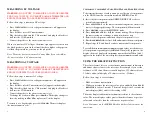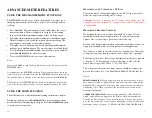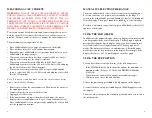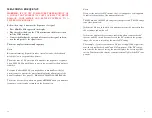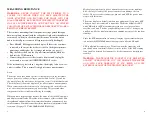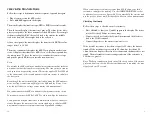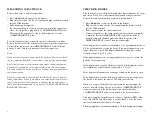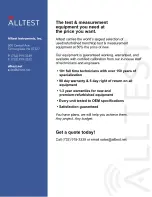
Quick Facts and Features
This Micronta True RMS Multimeter is a portable 3
2
/
3
-digit meter
ideally suited for field, lab, shop, bench, and home use. It makes true
RMS measurements, a feature you normally find only in the most
expensive test instruments, so AC measurements are as accurate as
possible. Here are some features that make the meter a real pro.
True RMS Operation — gives a more accurate reading for non-sine
wave AC measurements.
Transistor-Check Function — measures the gain (hFE) of small-signal,
bipolar transistors and identifies pin-out and type.
Capacitor-Check Function — measures the capacitance of low-voltage
capacitors.
Frequency Counter — measures frequencies up to 2 MHz.
One-Finger Function Selector — makes it easy to use your meter when
you have only one hand free.
Micronta 22-175a
Basic Operation Manual
•••••
MEASURING HIGH-VOLTAGE CIRCUITS
When using the meter to check a high-voltage circuit, do not try to position
both probes at once. Instead, clamp one probe to a neutral or ground lead of
the circuit (usually a bare, green, or white lead in AC wiring circuits) with
insulated alligator clips. Then, probe for voltages with the other probe. This
helps prevent you from accidentally touching a hot wire, because you need
concentrate on only one test probe.
WARNING:
NEVER CLAMP ONTO A HOT WIRE (USUALLY RED,
BLACK, OR BLUE IN AC WIRING CIRCUITS). IF YOU CLAMP
ONTO A HOT WIRE AND TOUCH THE OTHER PROBE, YOU
COULD RECEIVE A SHOCK.


